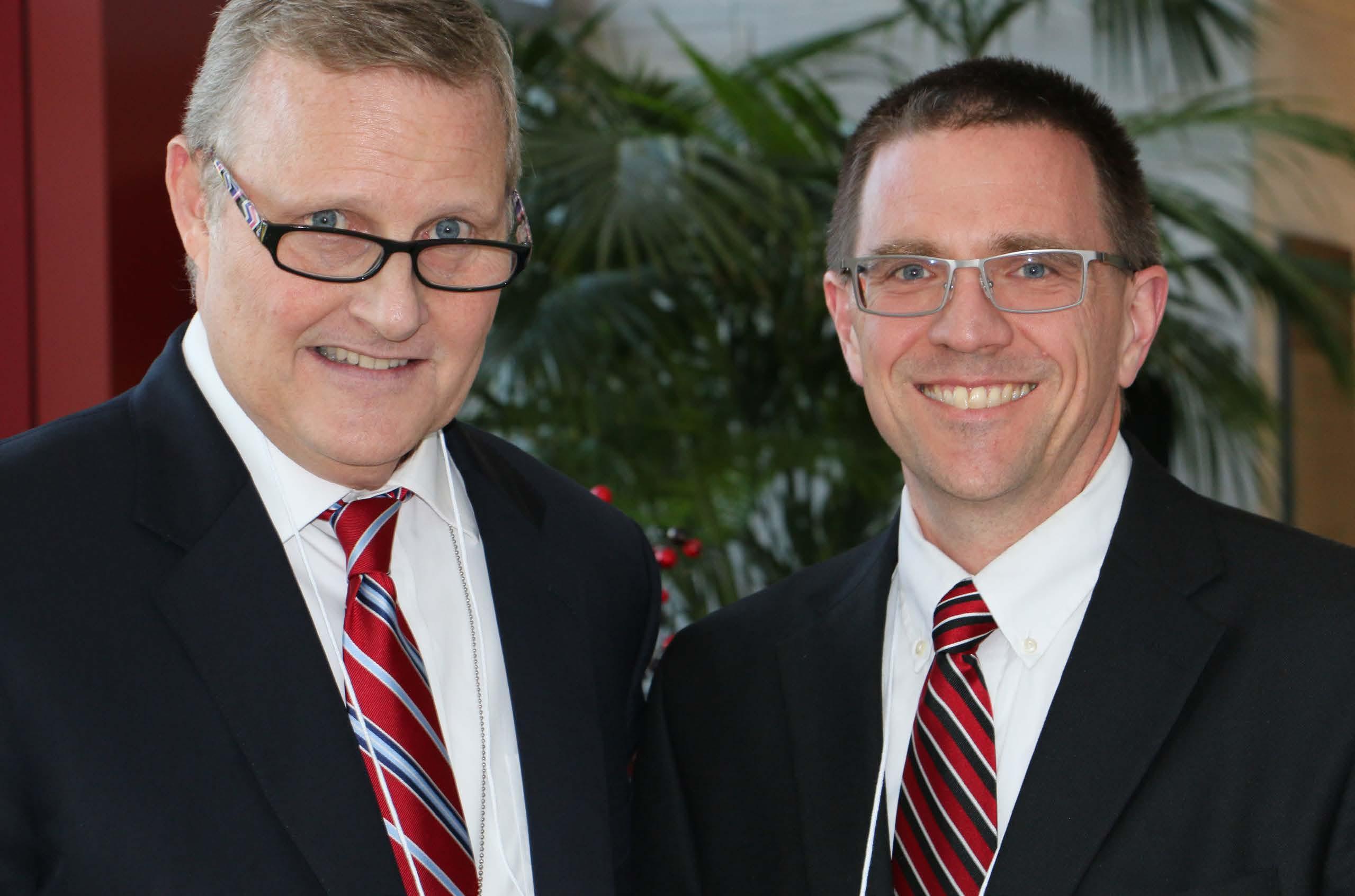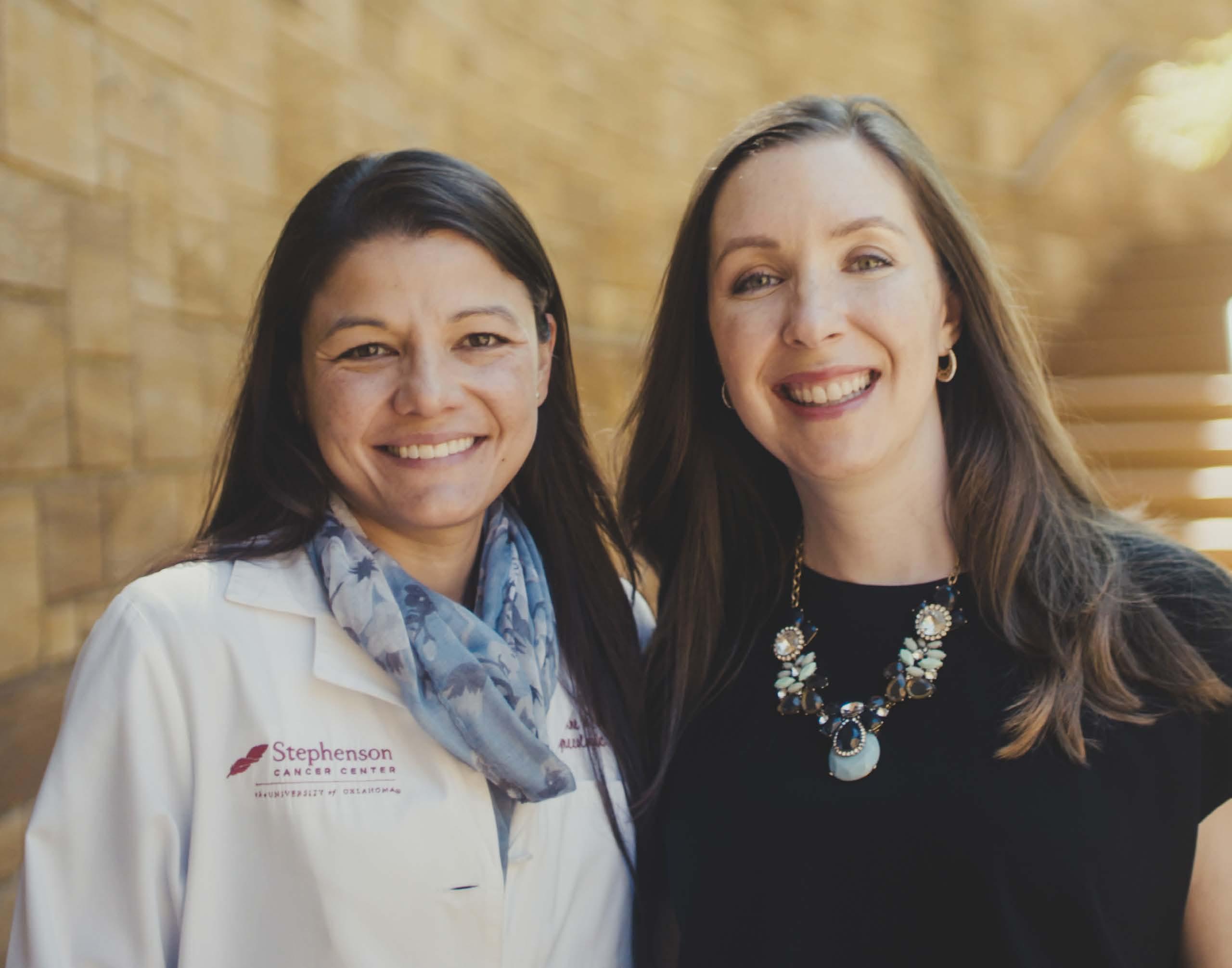TULSA
PA program director Shannon Ijams, MPAS, PA-C, visits with students at the School of Community Medicine.
PA Program Graduates 10th Class In November, the OU-TU School of Community Medicine graduated its 10th class of physician assistants from a program that is distinctive for its broad and diverse approach to education. Traditional clinical and didactic experiences combine with unique learning opportunities, such as Lifestyle Medicine and Civil Mental Health Court, to equip PAs to help their patients with all the factors affecting health. From the first day of their careers, PA students are ready to care for the human beings in their exam rooms, not just their illnesses. “We want to produce highly trained, competent PAs who can engage with their patients in a compassionate way,” said program director Shannon Ijams, MPAS, PA-C. “Our hope is that by broadening our students’ understanding of what their patients may be going through, such as substance abuse or navigating the criminal justice system, they can help them with a non-judgmental, empathic approach.” PAs receive valuable clinical experience through PAL, the PA Longitudinal Clinic. It is part of the Bedlam Longitudinal Clinic
36
on campus, where medical students also care for patients who are underserved and uninsured. On their teams, PA students evaluate patients first, then work with a PA faculty member to determine the best care. Students also work alongside nursing, social work and pharmacy students to meet the entirety of their patients’ needs. “The PAL clinic empowers PA students to assume the role as a primary care provider for their patients, including ordering laboratory and radiological services, referring them for a mammogram or connecting them with community resources, like Family and Children’s Services for mental health issues,” Ijams said. “And because this is a year-long clinical experience, they care for patients when they return for follow-up appointments for their diabetes management, for example. This helps students learn that incredibly important skill of care management on a longitudinal level.” Through PA faculty members Bobby Bosse, MHS, PA-C, and Mark Perdue, MHS, PA-C, students also learn about the expanded use of technology in patient care – point-of-care
[ Fa l l / Wi n t e r 2 019 ]











































